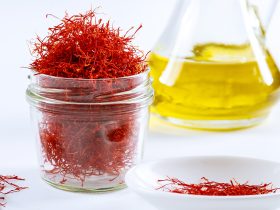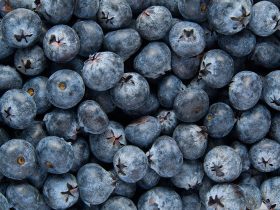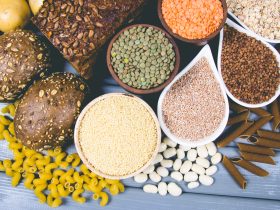Some people think that a healthy diet is full of unflavoured dishes, plenty of leafy greens and lots of fruit. Even if leafy greens and fruit are important and should definitely be part of any diet, you’ll be surprised to discover these 13 foods that taste good and are unexpectedly healthy if prepared right.
-
Popcorn
Popcorn often gets labeled as junk food, but it’s great for those evenings when we want to relax and watch a movie. The good news is that it is actually a whole grain with substantial fiber content.
Popcorn has a high fiber content, which aids in satiety, and contains essential nutrients such as vitamin B, magnesium, and manganese. It also boasts antioxidants, potentially shielding the body against diseases and cellular damage.
To make sure you keep the health benefits of popcorn, moderate the use of salt and butter toppings.
-
Pasta
Pasta is a great dish, as it is low in salt and fat but it does keep you satisfied for a long time, so you will be less likely to overeat or snack.
If you want to make this dish as healthy as possible, opt for whole-grain pasta and be very careful what you put on it.
For example, if you go for plenty of alfredo sauce, the fat and salt levels increase by a lot. Therefore, it is a better idea to simply stick with olive oil and a bit of Parmesan.
-
Honey
Some people seem to believe that everything sweet is bad and the sweeter something is, the more it can negatively affect your health. But that is not true when it comes to honey.
Honey, besides being a natural sweetener, contains a variety of antioxidants that contribute to cellular protection within the body. These antioxidants help in reducing inflammation, potentially benefiting overall health.
Honey has a positive effect on gut health. It facilitates a healthy balance of bacteria in the gastrointestinal system, which is essential for effective digestion.
A well-balanced gut microbiome not only helps your body in breaking down food but also plays a vital role in extracting nutrients from the consumed food, ensuring the body receives the maximum benefit from the nutrients available.
-
Chocolate
Similar to honey, chocolate is considered to be bad for your health because it is sweet and it often contains less cocoa and more additives and flavors. And this is actually right, but there is a way around it.
However, chocolate also contains flavonoids, compounds known for their potential to shield cells from damage. These flavonoids offer a myriad of health benefits, including the potential to reduce blood pressure, enhance blood circulation to the brain and heart, and potentially lower the risk of certain types of heart disease.
Dark chocolate is the recommended option due to its higher cocoa content, which is where these beneficial flavonoids are abundant, and its lower sugar content.
However, keep in mind that moderation is key as excessive consumption, even of dark chocolate, can have negative effects. Enjoying a small amount of dark chocolate allows you to reap the benefits without overindulging. This is also a healthy choice if you are looking for ways to defeat sugar cravings.
-
Coffee
Individuals at risk of heart disease or stroke used to be instructed to keep their coffee intake to a minimum. However, current research indicates that even heavy consumption of coffee does not significantly increase the risk of these conditions.
In fact, having a moderate intake of three to five cups per day might potentially reduce the likelihood of experiencing heart disease or strokes.
Regardless, excessive consumption of coffee can still have negative effects such as jitteriness and gastrointestinal discomfort. It’s essential to be mindful of your tolerance levels and not exceed them to avoid these side effects.
The key to enjoying a healthy cup of coffee is being mindful of the additives like cream and sugar. These can highly increase the calorie and fat content of the beverage, potentially negating some of the health benefits associated with moderate coffee consumption.
-
Red Meat
In order for it to actually be healthy, red meat should be lean so trim all the fat you can from the meat.
This lean form of red meat is a great source of protein and also contains essential nutrients like omega-3 fatty acids, zinc, vitamin B12, niacin, and iron.
When consumed in small portions, studies indicate its potential to reduce LDL, commonly known as the “bad” cholesterol.
-
Peanut Butter
Peanut butter is known to contain a significant amount of fat, but that primarily comprises unsaturated fats, which are considered beneficial for health. This is a great addition if you follow, for example, a vegan ketogenic diet.
Research indicates that individuals who regularly consume nuts or peanut butter have a lower risk of developing heart disease or type 2 diabetes compared to those who infrequently include them in their diet.
Additionally, peanut butter serves as a great source of potassium, a mineral lacking in the diets of many people around the world, especially those in the United States.
To optimize its health benefits, choose unsalted varieties of peanut butter. This choice helps reduce sodium intake, allowing individuals to enjoy the nutritional advantages of peanut butter and not have to deal with the potential drawbacks associated with excess salt consumption.
-
Eggs
Eggs are probably one of the most common ingredients for breakfast meals around the world. And that is great because they are a nutritional powerhouse, which is why they are part of many famous diets such as the Atkins diet.
Eggs contain a comprehensive array of B vitamins and essential amino acids, which serve as the fundamental building blocks of protein. Additionally, they contain certain nutrients that are not as prevalent in many other foods, such as vitamin D and selenium.
One notable benefit of consuming eggs is that they can keep you feeling full for an extended period. This makes eggs an excellent choice for starting the day, as they provide a feeling of satisfaction and sustained energy, contributing to a balanced, tasty, and fulfilling breakfast.
-
Alcohol
As per the majority of entries in this list, moderation is key when it comes to consuming alcohol. However, this is true with most foods and beverages.
Moderate alcohol consumption, which is typically defined as one drink per day for women and up to two drinks for men, has been associated with potential health benefits.
This does not mean you have to consume it every day, but every now and then, a glass of wine can do more good than bad. Research suggests that moderate drinking may offer protection against conditions such as heart disease, kidney stones, gallstones, and type 2 diabetes.
However, it’s crucial not to overindulge.
Excessive alcohol intake can lead to adverse health effects and may counteract the potential benefits observed with moderate consumption.
-
French Brie
If you have a well-rounded diet, incorporating full-fat dairy products such as French Brie, yogurt, and whole milk, could be completely safe.
However, it’s important to consider that these dairy products, including Brie, contain calories that can contribute to overall calorie intake, which is why it is applicable only if you have a well-rounded diet.
Maintaining a balanced approach to consumption is key. Striking a balance between enjoying these foods as part of a varied diet while managing calorie consumption helps ensure their inclusion without overindulgence.
-
Potato Salad
Potato salad can be great for your health while also keeping you satiated; it all comes down to how you prepare it.
When prepared with cooled potatoes, potato salad contains a component known as “resistant starch,” which behaves similarly to fiber.
This resistant starch helps in maintaining a healthy gut. However, regardless if you prefer them hot or cold, potatoes are rich in essential nutrients such as potassium and magnesium, contributing to a well-balanced diet.
When preparing potato salad, make sure you pick a low-fat and low-calorie mayonnaise as a dressing choice. This helps in reducing the overall fat and calorie content of the salad while still enjoying the nutritional benefits offered by the potatoes, as well as the rich taste.
-
Dark Meat Chicken
The main downside of dark meat chicken is that it contains higher levels of saturated fat compared to white meat.
However, it compensates for this by offering an abundance of essential minerals like iron, selenium, and zinc, along with a good supply of vitamins A, B, and K.
In addition, dark meat chicken is high in taurine, a beneficial amino acid known for its role in fat metabolism. Taurine contributes to breaking down fats, potentially aiding in managing inflammation and regulating blood pressure levels.
Despite its higher saturated fat content, the nutritional richness of dark meat chicken makes it a very valuable source of essential nutrients and compounds that are beneficial for overall health.
-
Frozen Vegetables
Is it okay to freeze fruit and vegetables? Some believe it is not because it destroys the beneficial nutrients and vitamins. However, the truth is that frozen vegetables offer comparable health benefits to their fresh counterparts, and in certain cases, they may even retain more nutrients.
This is because frozen vegetables are harvested and frozen at their peak nutritional quality. Stocking your freezer with frozen vegetables ensures a convenient and readily available supply whenever needed, without compromising their nutritional value.
Therefore, relying on frozen vegetables can be a practical and nutritious choice for maintaining a healthy diet.
















Find Us on Socials